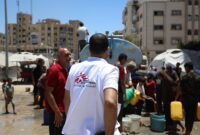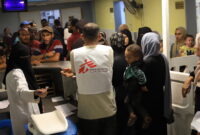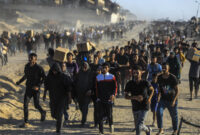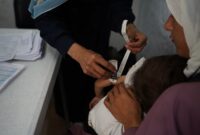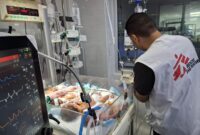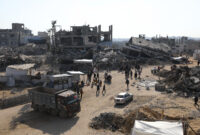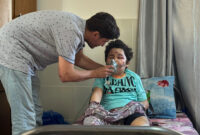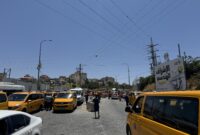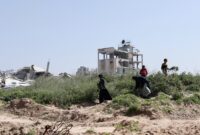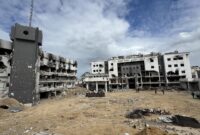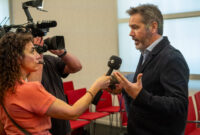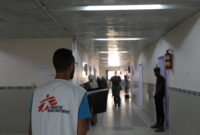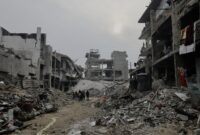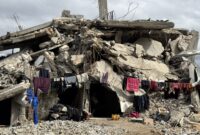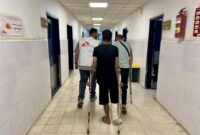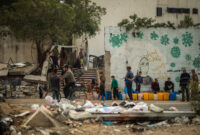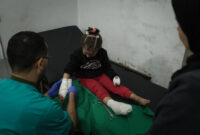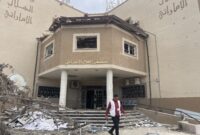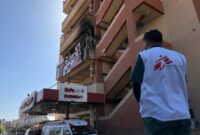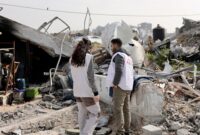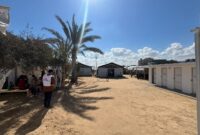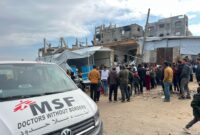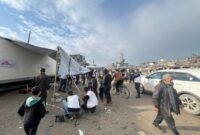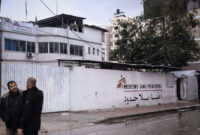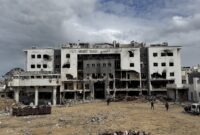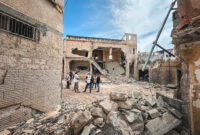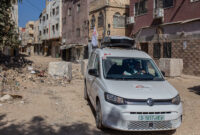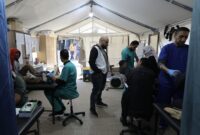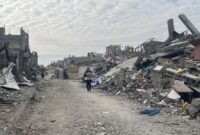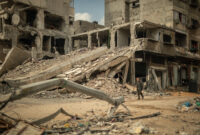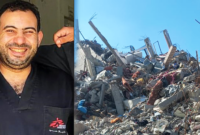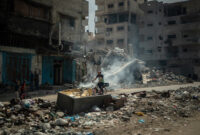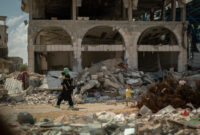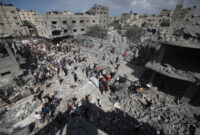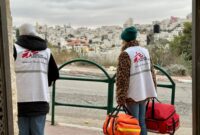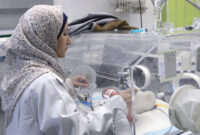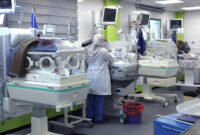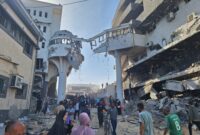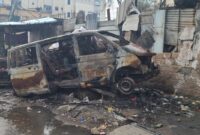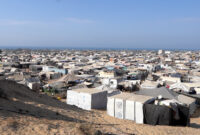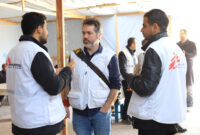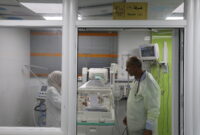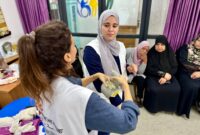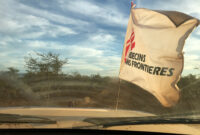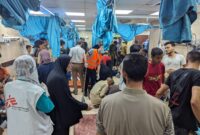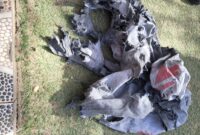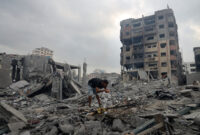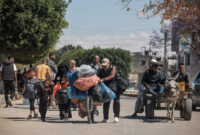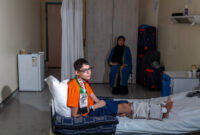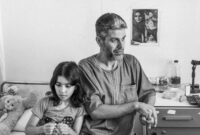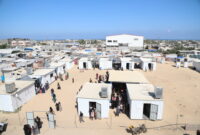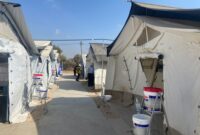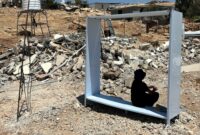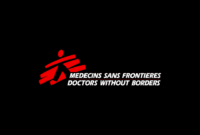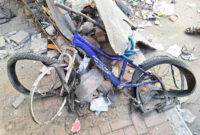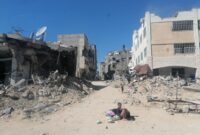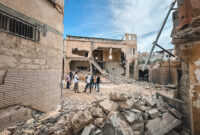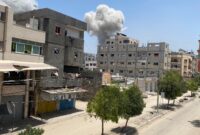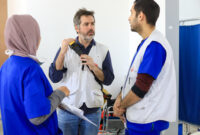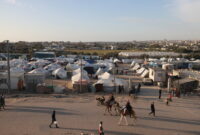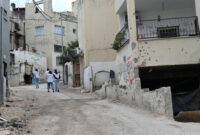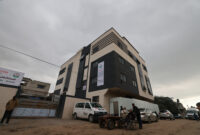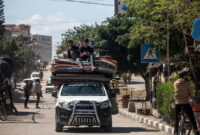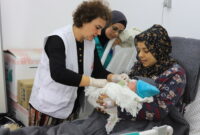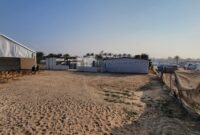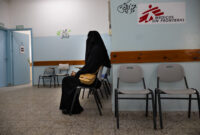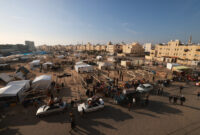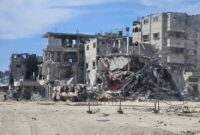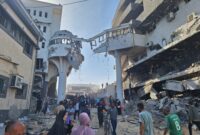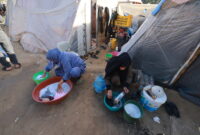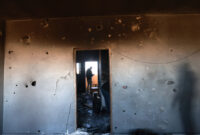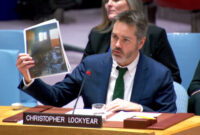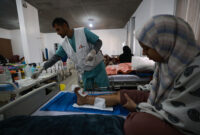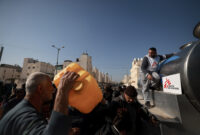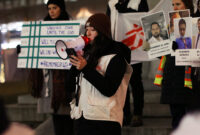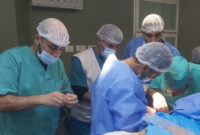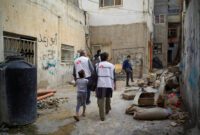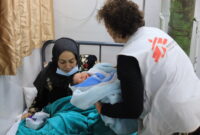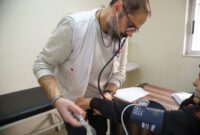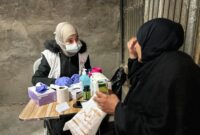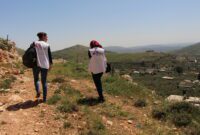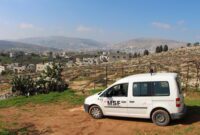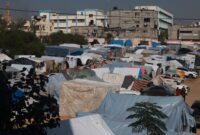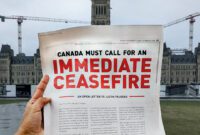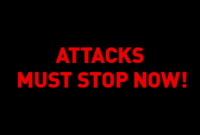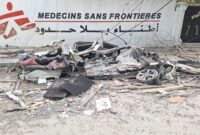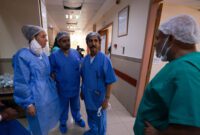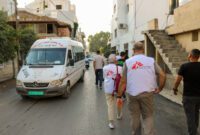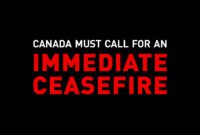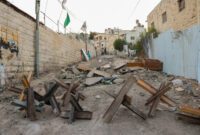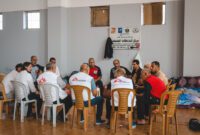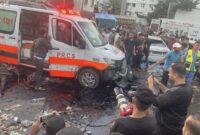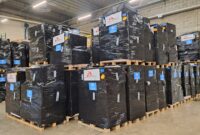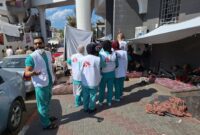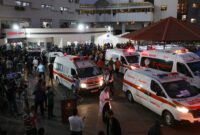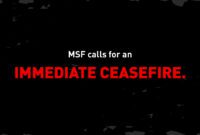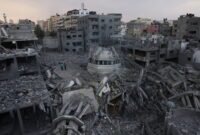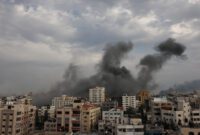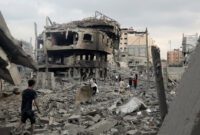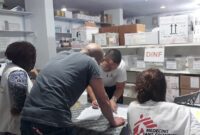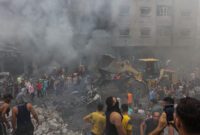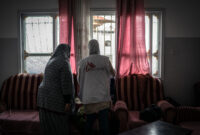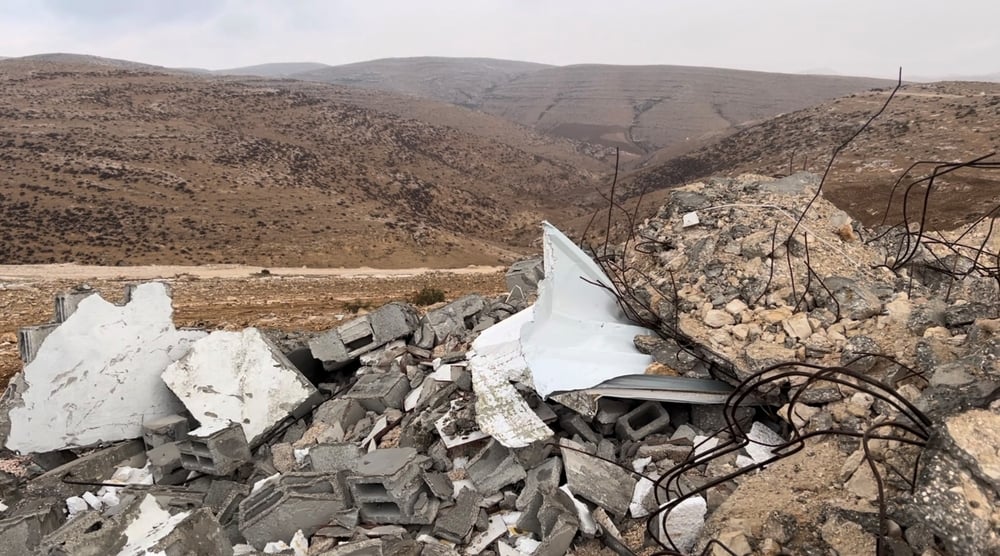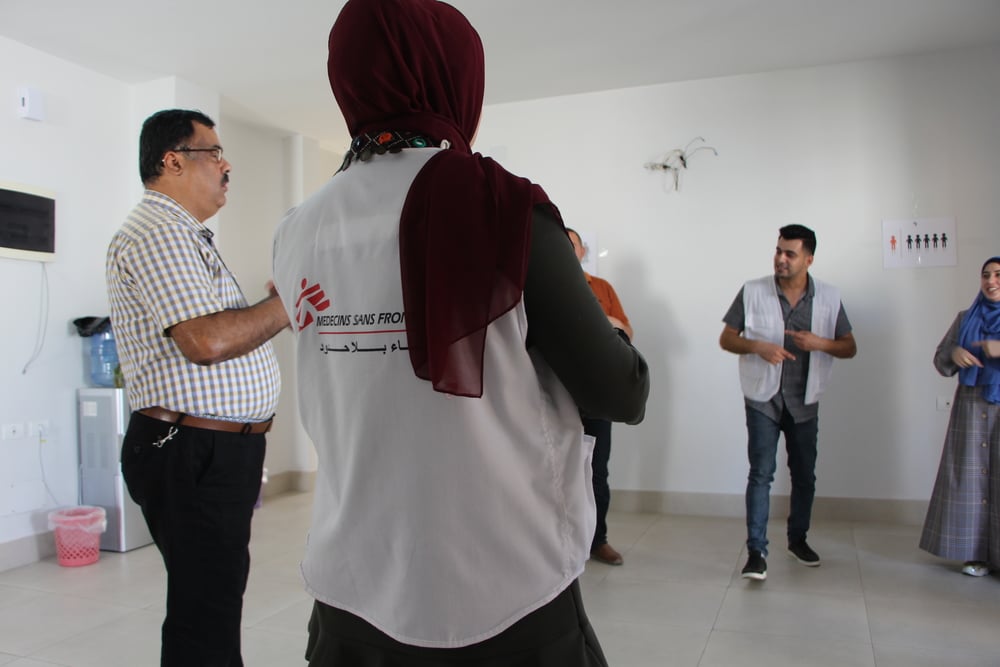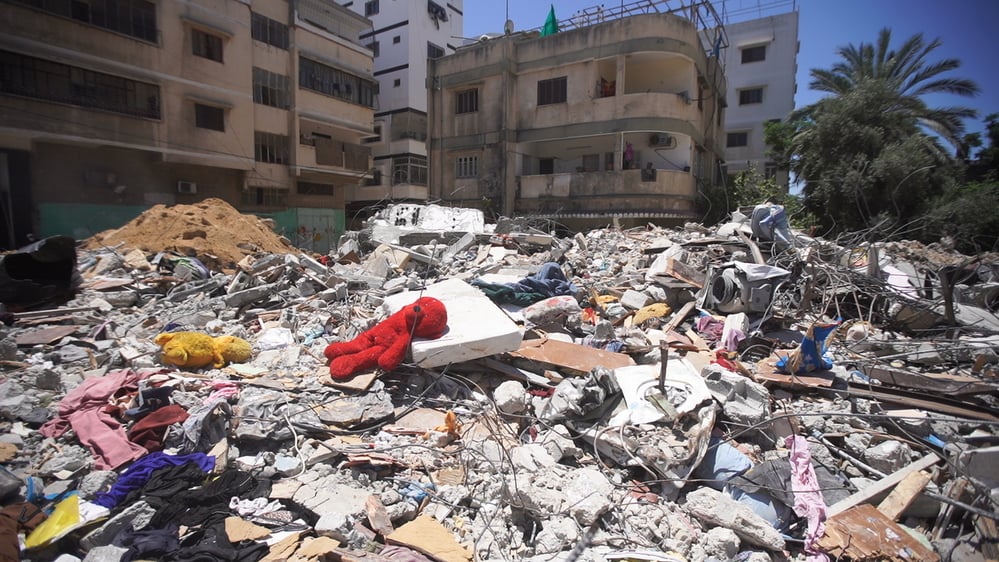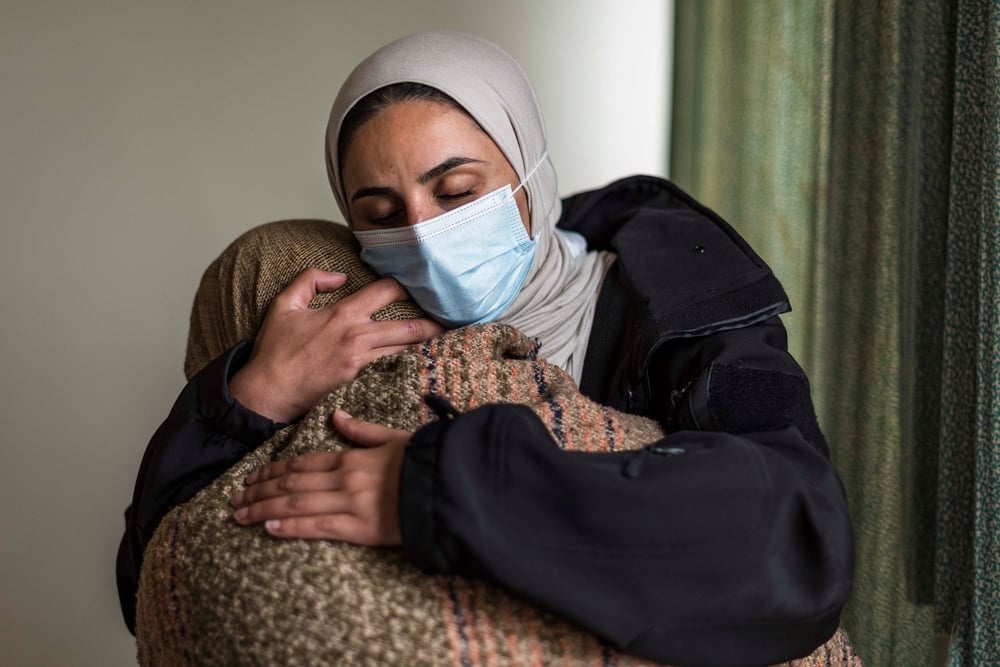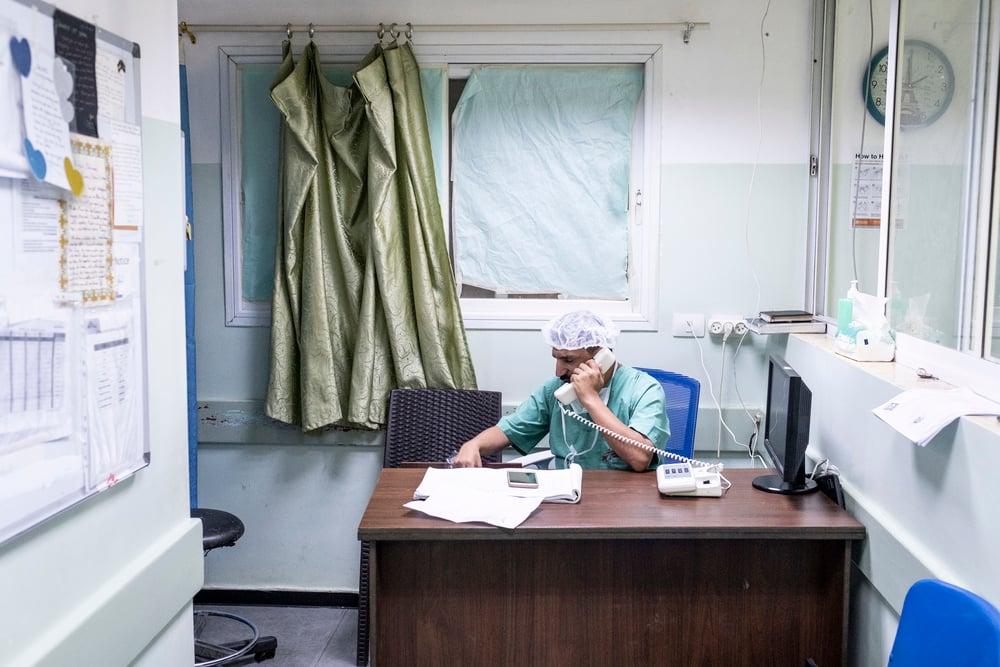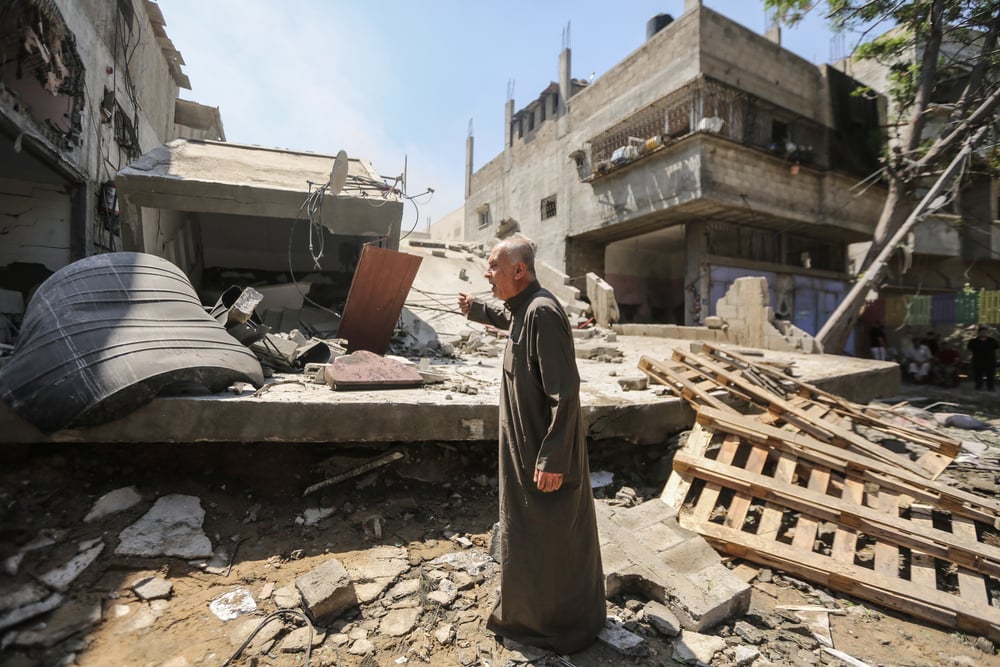Genocide in Gaza
An unprecedented humanitarian crisis continues to unfold in Gaza.
The war in Gaza has turned a chronic humanitarian crisis into a catastrophe. Doctors Without Borders/Médecins Sans Frontières (MSF) teams are clear: we are witnessing Israel commit genocide.
MSF teams are seeing firsthand the campaign of ethnic cleansing of Palestinians being pursued by the Israeli military in Gaza.
Our staff have worked to treat wounded people and supply overwhelmed hospitals as indiscriminate airstrikes and a state of siege threatens millions of people, including children.
We are horrified by the events that exploded on Oct. 7, 2023 – both the brutal mass killing of civilians perpetrated by Hamas in Israel and the relentless assault on Palestinian people in Gaza.
MSF calls once again for the immediate restoration of a sustained ceasefire. We call for aid, notably food, water, fuel and medical supplies, to be allowed into Gaza at scale.
We urge Israeli authorities—and the governments that arm and enable these atrocities—to end the siege now and take action to prevent the erasure of Palestinians from Gaza.
Now more than ever, Canada must stand up for humanity
Add you name to our petition calling on the Canadian government to protect civilians, hospitals, staff and patients in conflict zones around the world.
SIGN NOWWhat is happening in Gaza?
As of July 2025, over 55,000 people have been killed in Gaza, including 12 MSF staff.
Our teams are witnessing: the deliberate targeting of medics and hospitals; the use of starvation as a weapon of war with a blockade starving people of food, water, fuel and medical supplies; the militarization of aid; and the massacre of starving people queuing for aid.
In short, we are witnessing a genocide.
Through deliberate actions — including forced displacement, annexation, and mass killings — Israel is systematically destroying the conditions necessary for Palestinian life.
Much of Gaza’s civilian infrastructure has been intentionally destroyed. Hospitals have been completely overwhelmed and have faced running out of critical supplies. Some medical facilities have been hit by indiscriminate bombing while others have been under siege.
We are witnessing a campaign of ethnic cleansing as the very fabric of society and Palestinian life is being wiped away in Gaza.
This campaign not only displaces Palestinians on a massive scale but also seeks to deny them — and future generations — their right of safe return, effectively erasing entire communities from the map.
What is MSF doing in Gaza?
Our teams are offering surgical support, wound care, physiotherapy, maternity and pediatric care, sexual and reproductive care, primary healthcare, vaccination and mental health care, among other services. MSF teams are also providing water distribution.
However, massive challenges related to supply as well as sieges and evacuation orders on various hospitals are pushing our activities onto an ever-smaller territory and limiting our response.
Medical services
Between October 2023 and May 2025, MSF has worked to bring lifesaving healthcare to people in Gaza where possible, including:
outpatient consultations
people treated for diarrhea
surgical interventions
inpatients admitted
prenatal consultations
individual mental health consultations
non-communicable disease consultations
births assisted
Other humanitarian activities
Water and sanitation
Between January and the end of April 2025, MSF has distributed over 60 million litres of water and has produced over 7.8 million litres of clean water through desalination.
In partnership with local organization the Agriculture Development Association, known as PARC, we have implemented water and sanitation activities in camp shelters in Deir El Balah and Khan Younis. This includes:
- building latrines
- supplying hygiene kits
- providing water treatment units
- supporting a camp hosting 70 families (400 people total) of people living with disabilities with accessible latrines and showers.
What is MSF calling for?
- An immediate and sustained ceasefire to prevent more deaths and injuries and allow the delivery of humanitarian aid.
- The protection of civilians, healthcare facilities and staff at all times.
- The siege of Gaza must be lifted.
- Israeli authorities must facilitate the medical evacuation of all patients who require treatment that is not available in Gaza. These patients must be able to travel with at least one caregiver, and there must be no prejudice to their right to a safe, voluntary, and dignified return to Gaza.
What is MSF seeing in Gaza?
MSF is witnessing clear signs of ethnic cleansing as the very fabric of society and Palestinian life is being wiped away in Gaza.
Our firsthand observations of the medical and humanitarian catastrophe inflicted on the Strip are consistent with the descriptions provided by an increasing number of legal experts and organizations concluding that genocide is taking place in Gaza. While we don’t have legal authority to establish intentionality, the signs of ethnic cleansing and the ongoing devastation—including the full blockade of aid, forced displacement, and mass killings, severe physical and mental health injuries and impossible conditions of life for Palestinians under siege and bombardment—are undeniable.
Medical and humanitarian needs in Gaza are immense and continue to skyrocket as Israeli authorities maintain their inhumane siege of Gaza.
MSF teams are having to restrict the criteria for patient admission to those with the highest urgency, as supplies are running out and the number of patients is increasing. Millions of people have been displaced without basic needs, and people with chronic and severe illnesses lack access to care, leading to severe and sometimes fatal complications.
In Nasser hospital, Khan Younis, MSF teams are witnessing an increase in patients with burns, as well as patients who have been significantly delayed having the surgical intervention they desperately need. In Gaza city clinic, MSF teams are overwhelmed with the high number of patients – almost 400 a day. As supplies are running out, our teams are unable to keep up with the high needs. The mental health needs are also skyrocketing, and MSF teams are seeing people with severe anxiety and depression.
Israeli forces have devastated the health system.
Not a single hospital is currently fully functional in Gaza, and only 21 out of 36 hospitals are partially functioning according to the World Health Organization. The few remaining facilities cannot meet the vast medical needs, especially for critical cases requiring burn care and reconstructive surgery.
The lack of access to basic needs is further fueling medical needs.
This includes outbreaks of infectious diseases, skin conditions, and other conditions linked to dire conditions. From January to February 2025, MSF teams conducted over 82,000 general healthcare consultations – almost a fifth of those related to conditions linked to lack of water and hygiene, including scalp infections and skin conditions such as scabies.
Ongoing offensives across multiple locations in Gaza and repetitive evacuation orders further reduce people’s access to healthcare.
On top of the casualty toll caused by the bombardments and fighting, there are many ‘silent killings’ – people who have succumbed to entirely preventable conditions or had their healthcare disrupted due to the conflict: dialysis patients who can’t receive treatment, noncommunicable diseases patients left untreated, pregnant women with complications who can’t find treatment.
Since the start of the war, MSF staff and patients have had to leave 20 different health structures and have endured 50 violent incidents.
These include airstrikes damaging hospitals, tanks being fired at agreed deconflicted shelters, ground offensives into medical centres and convoys fired upon. These incidents show the blatant disregard of medical humanitarian action and failure of deconfliction measures.
Healthcare and humanitarian workers have been repeatedly attacked.
Since the war began, over 1,400 health workers in Gaza have been killed, according to the UN. At least 418 humanitarian workers, the vast majority Palestinian, have been killed. Eleven MSF colleagues have been killed since the start of the war. We condemn these killings in the strongest possible terms.
Israels´ blockade on Gaza has left hospitals without critical supplies.
Throughout the war, MSF has witnessed patients dying on hospital floors, as facilities have been unable to cope with the overwhelming number of patients or haven´t had the supplies needed to provide care. Israeli authorities have on numerous occasions denied and delayed entry for items like oxygen concentrators which are essential for anesthesia. The same for surgical equipment and generators, without which it is almost impossible to provide surgical care – resulting in more lives lost.
In the West Bank, unpredictable and recurrent violent incursions from Israeli forces have a huge impact on the provision of healthcare.
Ambulances are blockaded and searched. Essential infrastructure including electricity and water supplies are destroyed, impacting hospitals’ ability to function. Medical organizations and facilities are unable to operate in this insecure environment.
How is MSF responding in the West Bank?
MSF’s activities in the West Bank have been affected by the escalation of violence and movement restrictions that have limited people’s access to essential services, including healthcare. The impact on our patients’ mental health has been a particular concern.
We have responded by expanding our work to reach communities directly through helping local emergency services and supporting healthcare centres and clinics.
This includes:
- in Hebron, running 15 mobile clinics, supporting five primary healthcare centres, offering mental health support, distributing relief items, hygiene kits and food parcels
- in Nablus, providing psychological therapy, offering support for survivors of sexual and gender-based violence, trauma response training for doctors, nurses, psychologists as well as volunteer first-aid providers
- in Jenin and Tulkarem, training and donations to volunteer paramedics, donating water as well as diapers and basic medication when people were cut off from services, providing group mental health sessions, supporting Gazan workers stranded in the West Bank since October 2023.
MSF in conflicts
Around one-quarter of our medical humanitarian assistance is for people caught in armed conflict.
Armed conflict devastates lives and destroys communities. Targeted, harassed and caught in hardship and poverty, people are forced into flight or to live under siege and face indiscriminate attacks. Access to basic needs such as food and medical care is often disrupted.
Comprehensive medical and humanitarian support is vital, though health services are often scarce.
MSF provides medical care based on needs alone and works hard to reach people who need help the most.
Your questions about our work in Gaza, answered
Frequently asked questions about our work in Gaza and our commitment to impartiality and neutrality.
Why is MSF speaking out about the conflict in Gaza?
One of the central pillars of our identity is to bear witness and call attention to the problems driving emergency needs in the places where we provide humanitarian assistance.
We have a long history of speaking out and advocacy when governments or other actors implement policies that threaten the health and safety of our patients or our staff, for example in conflicts in Syria, Yemen, and Afghanistan.
International humanitarian law and the rules of war require militaries to distinguish between civilians and combatants and prohibit attacks that cause disproportionate harm to civilians and civilian objects. The way Israel is prosecuting this war is causing massive death and suffering among Palestinian civilians and is inconsistent with these norms and laws.
Medical facilities and their surrounding areas have repeatedly been attacked or subjected to evacuation orders by Israeli forces, making access to healthcare extremely dangerous for patients and putting the lives of medical staff at risk. This compels us to speak out and demand an immediate ceasefire.
Why are your statements so critical of Israel? Why are you not talking about Hamas?
As humanitarians, we grieve for all civilian lives lost, and the vast majority of the victims of this conflict are civilians, including many elderly people, women and children. Violence against civilians is never justified, and all civilians deserve protection.
MSF’s reporting is based on what our patients and staff tell us they are seeing on the ground in Gaza, where the Israeli military campaign and siege have had devastating consequences. The healthcare system has collapsed, and hospitals have run out of drugs, medical supplies, and fuel for generators. People have limited access to food, water, shelter, and electricity. And the death toll continues to rise.
Why is MSF calling for a ceasefire? Aren’t you a non-partisan organization?
We are calling for a sustained ceasefire because widespread and indiscriminate attacks on civilians—including attacks on healthcare—have made it impossible to deliver the humanitarian assistance needed in Gaza.
MSF offers medical humanitarian assistance to people based solely on need, irrespective of race, religion, gender, or political affiliation. As an organization, we focus on filling the greatest gaps in healthcare.
We have no agenda except to go where we are needed and treat patients and we are struggling to do so right now in Gaza due to the lack of drugs, medical supplies and fuel for generators.
How does MSF respond to critiques that it is anti-Israel or anti-Semitic?
MSF takes any allegation of anti-Semitism extremely seriously. At any given time, MSF has approximately 68,000 people working in our projects and headquarters. Any form of bigotry or discrimination by MSF staff is unacceptable.
We do not believe that criticism of Israeli government policies is equivalent to anti-Semitism.
MSF speaks out when governments or actors implement policies that are harmful to the health and safety of our patients or our staff. The way Israel is prosecuting this war is causing massive death and suffering among Palestinian civilians and putting our staff at risk. This is inconsistent with the norms and laws of war.
No state is above criticism.
As humanitarians, we grieve for all civilian lives lost, and the vast majority of the victims of this conflict are civilians, including many elderly people, women, and children. Violence against civilians is never justified, and all civilians deserve protection.
What is MSF’s relationship with Hamas in Gaza?
MSF works with the Ministry of Health in Gaza. We coordinate our work through them. When it comes to ensuring the safety of our teams in Gaza, we maintain contact with the Ministry of Interior in Gaza, just as we maintain contact with the Israeli authorities. MSF works in more than 70 countries around the world. Wherever armed conflict is present, we maintain contact with all actors to safeguard our teams and activities.
